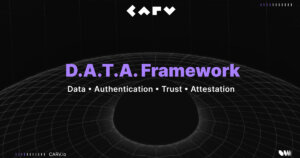 DeFi salaries soar despite industry turmoil
DeFi salaries soar despite industry turmoil DeFi salaries soar despite industry turmoil
Durlston Partners attributed the increased salaries to the sector's maturation and the paucity of talents in the space.

Cover art/illustration via CryptoSlate. Image includes combined content which may include AI-generated content.
Salaries for decentralized finance (DeFi) engineers rose to an average of £142,500 during the fourth quarter of 2022 despite the issues the industry faced during the period, according to a July 3 press statement shared with CryptoSlate by talent advisory firm Durlston Partners.
Durlston Partners attributed the increased salaries to the sector’s maturation, adding that the lack of DeFi talents resulted in a fiercely competitive landscape where employers offered enticing compensation packages to attract and retain top talent.
DeFi engineers remain in demand
In 2022, the crypto industry experienced a record-low drawdown as Bitcoin’s (BTC) price fell to around $15,000 while several crypto firms like Celsius, Voyager Digital, Three Arrows Capital, and FTX collapsed.
Following these events, several crypto companies laid off more than 20,000 employees. However, DeFi engineers remained in demand due to their highly specialized skill set in the ultra-competitive crypto space.
“Despite the decline in confidence in crypto companies and the market freeze, experienced engineers have proven indispensable to the continuity of business operations, leading to stable salaries in the DeFi sector.”
Before the uptick, Durlston Partners noted that the base salaries for DeFi engineers ranged between £100,000 and £125,000 within the last two years.
Speaking on the report, the managing partner of Durlston Partners, Meraj Bahram, said:
“DeFi engineering jobs, such as software and DevOps engineers, have proven sturdy in the climate of volatility and uncertainty that has afflicted the crypto market. Our data confirms that companies continue to seek high-skilled employees, and the consistency in salaries serves as proof of this.”
Meanwhile, Durlston Partners conceded that there was still much room for growth and innovation in the DeFi sector, adding that the space could witness more salary growth in 2023 as the industry continues to evolve.







 Elon Musk
Elon Musk 










































































 BTC
BTC


